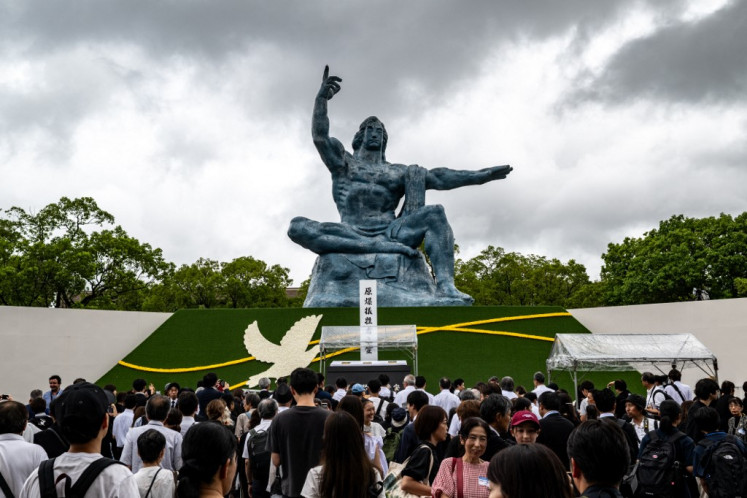Popular Reads
Top Results
Can't find what you're looking for?
View all search resultsPopular Reads
Top Results
Can't find what you're looking for?
View all search resultsStages of resistance
For years, the state’s approach aligned more closely with regimes that repress rather than protect free speech.
Change text size
Gift Premium Articles
to Anyone
"Life will find a way," thus spoke by Dr. Ian Malcolm, a character in Michael Crichton's 1990 novel Jurassic Park. The quote is of course immortalized in pop culture through actor Jeff Goldblum’s enunciation "life, uh, finds a way" in the 1993 movie adaptation of the book.
Like resilient and persistent life itself, humans will always find ways to adapt, survive and then thrive, even in extreme or controlled conditions. More often than not, it is the younger generation who is at the forefront, pushing and rushing for discoveries and innovations.
We were therefore following with excitement when dozens of performers, including headliners, pulled from the lineup of the latest round of Pestapora (which literally means lavish party), one of the biggest music festivals in the country.
These artists made the move after finding out only on Sept. 5, the first of the show’s three days, about the festival's controversial sponsorship from mining giant PT Freeport Indonesia (PTFI).
PTFI, once under the control of United States mining company Freeport McMoRan for decades, has long been accused of environmental damages and serious human rights violations throughout its decades-long operation mining Papua’s copper and gold reserves. The National Commission on Human Rights (Komnas HAM) has repeatedly released findings showing PTFI’s disregard of its workers and the Papuan indigenous community.
PTFI’s mining operations led to ecological harm that caused some Rp 185 trillion (US$11.22 billion) in state losses, according to the Supreme Audit Agency (BPK) in 2018, the same year the Indonesian government, through state-owned mining holding company MIND ID, eventually acquired a majority stake in the company.
Pestapora 2025 came on the heels of the country’s biggest protests in years which triggered a violent crackdown across the country.
At least 10 people were killed and more than 900 wounded during the violent protests that started on Aug. 25, the most severe since President Prabowo Subianto took office 11 months ago. Close to 600 people remain in police custody following thousands of arrests.
In the middle of the protests, TikTok, one of the country’s most widely used platforms, suspended its live streaming feature. While TikTok claimed the move was voluntary, government officials publicly blamed social media platforms for spreading provocative content and endangering the public. Civil society groups rightly called the move censorship, slamming unilateral moderation as undermining democratic expression.
Indonesia has long struggled to protect freedom of expression, offline and online. For years, the state’s approach aligned more closely with regimes that repress rather than protect free speech. In the digital space, the Electronic Information and Transactions (ITE) Law has frequently been used to criminalize dissent, satire and legitimate criticism, often under vague legal provisions.
As always, necessity is the mother of invention.
Last year, we saw stand-up comedians and public figures joining street protests following the House of Representatives’ move to subvert a Constitutional Court ruling that lowered the electoral threshold for the November regional head elections. With smartphones in hands, they spoke out on their huge online platforms against an impending crisis.
Today, music, musicians and the stages they perform on are providing alternative channels and amplifications while the current situation stifles people’s voices.
We are encouraged to see that art performance or, more appropriately for the Pestapora case, the absence of it, is being utilized as an avenue for campaigning against social injustice.
Of course, actions are followed with reactions.
Some say the musicians were overplaying their hand, disregarding the fans who spent time and money to see them live. Indeed, several performers decided to go on with their performances, using the stage to voice their stance and donate their pay to environmental causes.
Others say that they are not doing enough. Why stop there? Why not boycott festivals sponsored by tobacco giants, extractive palm oil firms or those linked to Israel, which is committing a genocide against Palestinians?
We cheer for these differing views. It is through these kinds of debates that new paths are discovered, existing ones clarified and outmoded ones dismantled or repurposed.











